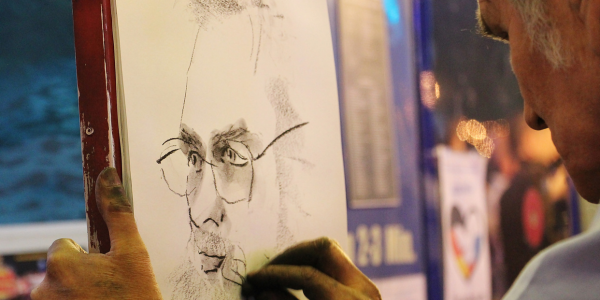Getting Good Is Good For You
By Julian Mokhtar

As I mentioned in my earlier article, there’s no great mystery around talent. It’s simply an ability; and an ability can be learned and improved. If it’s something new to us, it’s natural to find it difficult at first. The learning process especially at the beginning can be frustrating or even boring, but with the right attitude and a little perseverance can see you through these initial stages. We have two traits that help us to learn and improve. The first is curiosity. When we want to find out how something is done, or put together, or how something works, we ask questions. From the answers, we learn to bring up other questions, and on it goes. The more you learn, the less you know; the less you know, the more you want to learn. The second trait is tenacity or perseverance, an unwillingness to give up. We try something and don’t get it right, we try again, and then again. When we do that, we learn or figure out how to do it and eventually we get it. That applies to anything, from kungfu to cooking. Another factor that pushes us to master something is the sense of personal achievement. There is perhaps a hidden desire to prove that we can do something that someone else can’t. Somewhat related to that, but no less important, is wanting to avoid the embarrassment of seeing others do something that we can’t. It’s true that some of us tend to lose some of these traits in the midst of work, family, responsibilities and stress. Well, at this point in life, already retired or upon getting to retire, it may be worthwhile revisiting past or hidden passions. Finding and developing a talent can bring real benefits for physical and mental health. Recent research reveals our state of mind literally affects the state of our physical well being. Whether it’s something new or something you’re getting back into, attending to your skill helps you develop a positive mindset. If it’s something you used to do but had to put aside, there’s the “coming home” feeling of familiarity. You won’t have to start from beginner level so it will be easier to pick up and make progress. When it comes to something new, there’s the pleasure of discovery, learning and the sense of achievement with every step up. This will boost your self-esteem and confidence. Another benefit is the mental stimulation that comes with it. An idle mind is a mind wasted, a mind in decline. “Use it or lose it” applies just as much to the brain as it does to muscle. Learning and using skills makes more connections in the brain and improves cognition, problem solving and adaptability. Everyone needs some amount of interpersonal contact and developing your talent will help with that. Getting in touch with other people in the same field, sharing tips, ideas and experiences bring a sense of connectedness and community. It also opens up opportunities for collaborative work and exposure to related or even completely different fields. Besides, when we become good at something, there’s a sense of pride in being able to display that talent and having it appreciated. Some people even turn their talent into a business. For example, someone who becomes a good cook may not necessarily open a restaurant, but could start a catering business. Someone good at painting or drawing could start selling their artwork or doing design work. Being good at business is a talent in itself.
